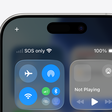Google Advanced Protection Program Adds Single Passkey Set-Up Option
Google today announced that has added a new passkey set-up option to its Advanced Protection Program, allowing Pixel and iPhone owners to use their device's biometric authentication instead of physical security keys.

For those unfamiliar with the Advanced Protection Program, it's designed for high-profile Google product users who need maximum protection from hacking attempts. It's a feature aimed at journalists, activists, business leaders, and others who feel vulnerable to targeted security breaches.
When it launched in 2017, Google required users to have two physical security keys to activate it, and one of those keys plus a password to log in. Last year, the company changed the feature so that users could sign in with just a passkey, but the physical security keys were still required to set it up.
From today, that's no longer the case. When users get started with Google's Advanced Protection Program, they will have the option to set up with either a passkey or a physical security key.
Passkeys are easier to use and more secure than passwords because they let users sign in to apps and sites the same way they unlock their devices: With Face ID, Touch ID, or a device passcode. Passkeys are also resistant to online attacks like phishing, making them more secure than things like SMS one-time codes.
Popular Stories
Verizon is experiencing a major outage across the U.S. today, with hundreds of thousands of customers reporting issues with the network on the website Downdetector. There are also complaints across Reddit and other social media platforms.
iPhone users and others with Verizon service are generally unable to make phone calls, send text messages, or use data over 5G or LTE due to the outage....
While the iPhone 18 Pro models are still around eight months away, a leaker has shared some alleged details about the devices.
In a post on Chinese social media platform Weibo this week, the account Digital Chat Station said the iPhone 18 Pro and iPhone 18 Pro Max will have the same 6.3-inch and 6.9-inch display sizes as the iPhone 17 Pro and iPhone 17 Pro Max.
Consistent with previous...
While the iPhone 18 Pro and iPhone 18 Pro Max are not expected to launch for another eight months, there are already plenty of rumors about the devices.
Below, we have recapped 12 features rumored for the iPhone 18 Pro models, as of January 2026:
The same overall design is expected, with 6.3-inch and 6.9-inch display sizes, and a "plateau" housing three rear cameras
Under-screen Face ID...
Apple today updated its trade-in values for select iPhone, iPad, Mac, and Apple Watch models. Trade-ins can be completed on Apple's website, or at an Apple Store.
The charts below provide an overview of Apple's current and previous trade-in values in the United States, according to the company's website. Most of the values declined slightly, but some of the Mac values increased.
iPhone
...
Apple and Google this week announced that Gemini will help power a more personalized Siri, and The Information has provided more details.
Subscribe to the MacRumors YouTube channel for more videos.
As soon as this spring, the report said the revamped version of Siri will be able to…
Answer more factual/world knowledge questions in a conversational manner
Tell more stories
Provide...




















